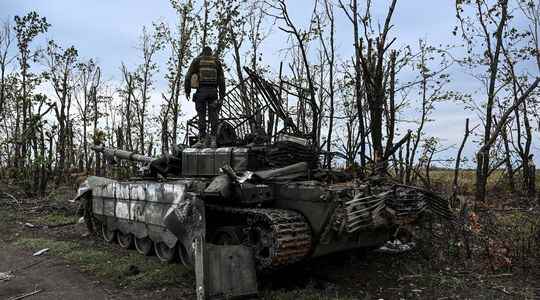It’s not yet a revolution, but it looks like a revolt. First there are those deputies from a district of Saint Petersburg who, on September 7, officially asked the Duma for the dismissal of Vladimir Putin for “treason”, because, they write, he “harms security of Russia and its citizens”. As for the formidable Chechen leader Ramzan Kadyrov, who has sent thousands of fighters to Ukraine, he plans to go “to talk to the leaders [russes] to explain to them the real situation on the ground”.
Legitimate concern. Because Vladimir Putin’s “special operation” looks more and more like a rout. The second, since the bitter failure of the capture of kyiv, at the beginning of the war, and the withdrawal of the Russian army which followed. Through deceptive communication, the Ukrainians cleverly tricked their opponents into concentrating their forces in the south, the better to hit them in the north and east. Carefully prepared, this counter-attack galvanized the troops, while criticism mounted on the lack of equipment and training of the soldiers sent to the front. “It shows the Ukrainian people that they are not doomed to remain on the defensive, and to the Western allies that their sophisticated arms deliveries make the difference,” said Marie Dumoulin, Russia specialist at the European Council on Foreign Relations.
Putin, the choice of escalation?
How far will they go? If some do not exclude that the Ukrainians, at the gates of Donetsk, could push their advantage much further, perhaps even as far as Lughansk, their victories, paradoxically, will expose them to new – potentially terrible – risks.
Rather than accept a humiliating defeat, Putin, who draws his legitimacy from his strength, may have no choice but to escalate. His political survival depends on it. With the approach of winter, the propagandists, visibly disconcerted, are already calling, on TV sets, to cut off water and electricity to Ukrainians by destroying their infrastructures. And then there is the nuclear threat, regularly agitated by the most radical “hawks” gravitating in Putin’s entourage. And who might begin to find that their master has lost his bite.
“It seems like it’s time to get tough,” host Vladimir Solovyov, one of the regime’s most outrageous voices, summed up during his television talk show. The war has undoubtedly come to a turning point. Let’s hope the worst is not yet to come.
